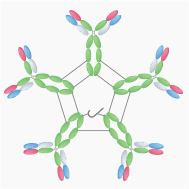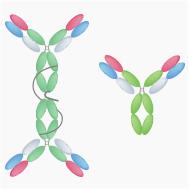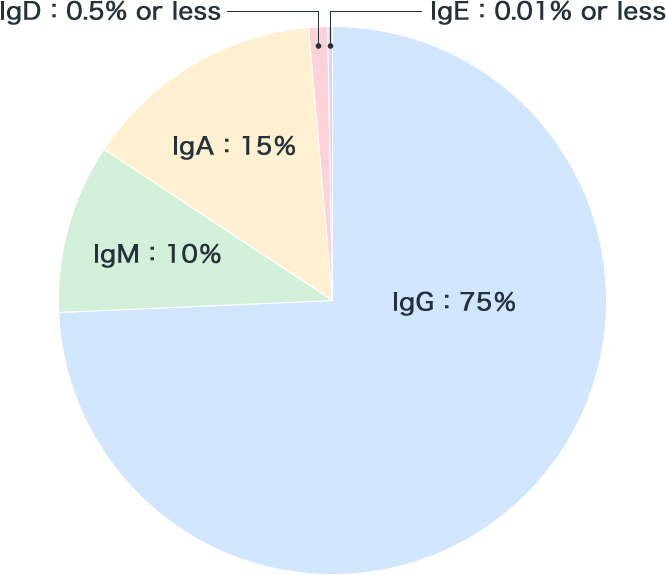5 antibody types
5 types of antibodies, each with a different function
There are 5 types of heavy chain constant regions in antibodies (immunoglobulin) and according to these types, they are classified into IgG, IgM, IgA, IgD, and IgE. They are distributed and function differently in the body.
- IgG

-
IgG is the main antibody in blood and it has a powerful ability to bind to bacteria and toxins, and takes on an important role in the biological defense system. It is the only isotype that can pass through the placenta, and IgG transferred from the mother's body protects a newborn. Most antibodies approved as therapeutics are derived from IgG or variants of IgG. Through research that utilizes the functions of IgG, for many years, Kyowa Kirin has been working on drug discovery which creates life-changing value.
Our effort in therapeutic antibodies - IgM

- IgM is constructed of five units of basic Y-shaped structures and is mainly distributed to the blood. Produced first upon pathogen invasion by B cells, IgM has a key role in the initial immune system defense for protecting the body.
- IgA

- While in blood, IgA is mainly present as monomers (the shape of a single Y), but it forms dimers (a combination of 2 Ys) in secretions such as bowel fluid, nasal discharge, and saliva, to prevent bacterial invasion from a mucous membrane. It is also present in breast milk and protects the gastrointestinal tract of newborns from bacterial and viral infection.
- IgD

- IgD is present on the surface of B cells and it is reported to play a role in the induction of antibody production and the prevention of respiratory tract infections.
- IgE

- It is believed that IgE was originally related to immunity reactions to parasites. By binding to mast cells, IgE is believed to be involved in allergies such as pollinosis.

